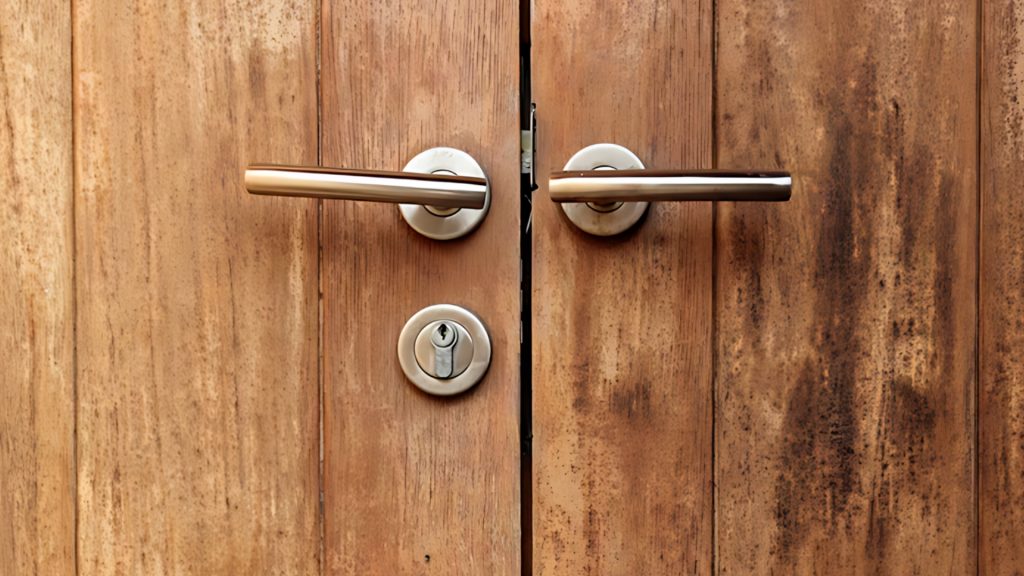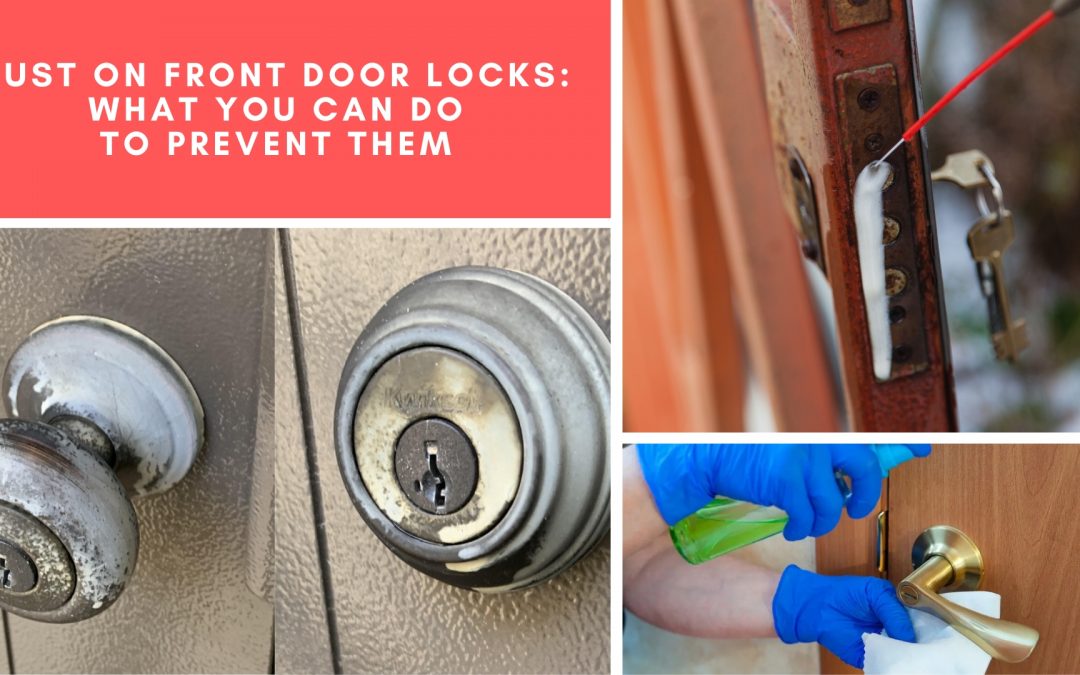Who knew that a little rust on your front door locks could cause such a big problem? Not only does it look unattractive, but it can also mess with the security and functionality of your locks. Welcome to this comprehensive guide, where we will delve into the fascinating world of rust prevention for your house door locks. Get ready to learn all the tricks you need to keep those locks in tip-top shape and your home safe and secure all year long.
What Causes Rust to Form on Front Door Locks?
Before we get into all the serious stuff about preventing rust, let us take a moment to understand what causes it in the first place. When metal gets exposed to moisture and oxygen, rust starts to form. It is a chemical reaction called oxidation. Rust on front door locks can be the metal’s worst nightmare. Blaming it on the ever-changing weather, from rain and snow to high humidity. However, did you know that even the tiniest bit of moisture from your hands can team up with metal to create the dreaded rust? So, be careful where you put those wet hands if you do not want to see rust in action.
Early Signs of Rust on Front Door Locks
Finding rust early on can help keep it from doing a lot of harm. Here are some signs to keep an eye out for:
Discoloration: Any unusual orange or brown staining on the metal parts of the lock.
Roughness: If the key is hard to turn or the lock feels gritty.
Sticking: The lock on your front door is hard to lock or open, which may suggest internal rusting.
If you notice these signs right away, you can avoid getting locked out of your home and having to pay a lot for fixes.

What You Can Do to Keep Rust on Your Door Locks at Bay
Always Clean Your Locks
Keep your locks clean. It is one of the easiest and most effective ways to prevent rust. Dirt and water can speed up rusting, so it is important to clean often. Clean the locks gently with a damp cloth and a light soap solution. Do not use rough chemicals or abrasive tools that might scratch the metal surface, which could damage the lock’s finish.
Lock Lubrication is Key
Once you have finished tidying up, give your locks a little treat with a spray of silicone-based lubricant made just for them. Not only does this make things run more smoothly, but it also creates a shield against moisture.
Go for Rust-Resistant Locks
When it is time to replace or upgrade your front door locks, picking the right materials can really shake things up. Stainless steel, brass, and zinc are excellent choices; they have an amazing power to resist corrosion. Who would have thought that splurging a little more on these materials would actually pay off in the end? So, when buying a new lock, opt for materials that will not turn your main entrance into a rusty mess. Not only will you save money on lock maintenance, but they will also last you a lifetime. Talk about a smart investment!
Shield Your Locks From the Elements
If you live in a place with a lot of heat or close to the coast, you may need to take extra steps. Use a rust inhibitor, which is a chemical solution that covers metal surfaces to protect them. Also, you may cover your front door locks with something to keep them from getting wet or shield them from salty air.
Keep Your Front Door Locks in Check
Make a schedule to inspect your door locks to spot and handle any signs of wear and tear, like pesky rust. It would be ideal to include this as part of your overall home maintenance routine. If you deal with problems sooner rather than later, it can save you from a world of trouble down the line. So remember, inspect, protect, repeat.
Deal with Existing Rust on Locks Head-on
If rust has already formed, it is important to take care of it right away to stop it from doing more damage. You can use vinegar or baking soda paste to remove small amounts of rust on your own. Once you have put the mixture on the rust, let it sit for a few hours, and then gently scrub it off. In more severe cases, you may need to call a residential locksmith who can take the lock apart and get rid of the rust spot-on.
Know the Various Types of Door Locks
It is helpful to know what kind of door locks you have when it comes to keeping them in good shape. Note that different locks require different care. It is not a one-size-fits-all situation. For instance, those sturdy deadbolt locks need a bit more TLC than their knob and electronic counterparts. So, if you want your front door locks to stay in tip-top shape, always give them the care they deserve.
Follow Seasonal Care Routines for Your Door Locks
Mother Nature has a little trick up her sleeve when it comes to rust development. Those sneaky changes in weather can really throw a wrench in the lock’s internal mechanism. Better keep an eye on the forecast if you want to keep that rust at bay. When the rainy season hits or you are living in a humid climate, it is time to amp up those inspections and lubrication sessions. Do not let the elements get the best of you!
Use Some Protective Lock Sealants
Put a clear protective sealant on your door locks to help keep water out even more. These seals are often easy to apply. Plus, they dry clear, so your locks will stay in tip-top shape without sacrificing their good looks. So go ahead and give your front door locks some extra love and keep them nice and dry.
Get Professional Locksmith Help
There are times when it is best to consult the experts. Locksmiths are not just there for emergencies. They can also give your front door locks some TLC to keep them in tip-top shape and prevent any rust from creeping in.
Locksmith Near Me
Are your front door locks up to the task of protecting your home in South Pasadena and nearby areas? At South Pasadena Lock, we specialize in providing top-quality residential locksmith services. Whether you need robust, rust-resistant front door locks, expert lock repair, or thorough lock maintenance, we are here to help. Remember, when it comes to all your lock and door needs, no one does it better than South Pasadena Lock. So, do not compromise on your home’s security. Contact us today to ensure your locks are in prime condition and keep your place safe and sound.


 South Pasadena Locksmith is a locally owned and operated locksmith service company that provide fast and professional locksmith service to the residents of South Pasadena and the near by communities like: Pasadena, Altadena, Glendale, Alhambra, Monterey Park, Rosemead along side many others..
South Pasadena Locksmith is a locally owned and operated locksmith service company that provide fast and professional locksmith service to the residents of South Pasadena and the near by communities like: Pasadena, Altadena, Glendale, Alhambra, Monterey Park, Rosemead along side many others..